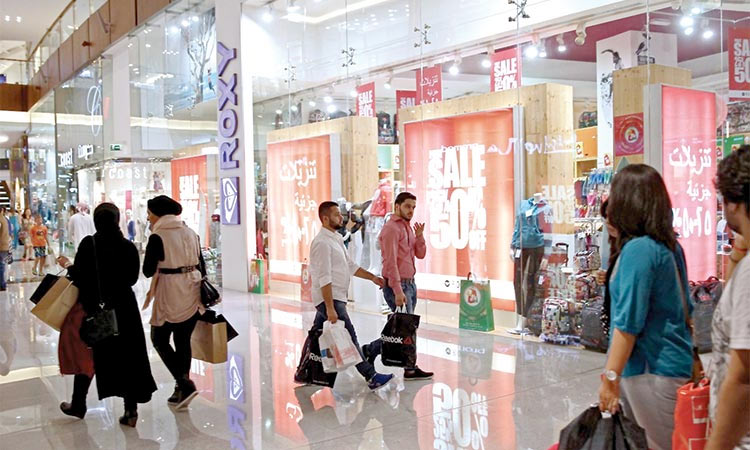
COVID-19 is accelerating the digital transformation of the Middle East’s retail sector as e-commerce sales set to jump to $48.6 billion in 2022, up from $26.9 billion in 2018, according to recent research.
The COVID-19 pandemic has fast-tracked and brought the future to present – in terms of digitial transformation process that has and is changing the US$25 trillion retail sector forever. Experts at 9th Middle East Retail Forum that took place in Dubai on Wednesday, said in a way, the COVID-19 put the retail industry on steroid and changed it forever.
The year 2020 will go down in history as the most remarkable year in the history of the retail industry due to the transformation and the opportunities it brings.
Justina Eitzinger, Chief Operating Officer of Images Group Middle East, organiser of the Middle East Retail Forum and RetailME Awards, said, “The retail industry is undergoing tremendous transformation and we are pleased to address this at the 9th Middle East Retail Forum, the only such industry conference in the Middle East!
“This year MRF is all about agility, responsiveness and being future-fit – themes that we thought could instigate some thought-provoking conversations led by the movers and shakers of the industry. Since notions like omnichannel, hybrid, and phygital are the new norms – we have incorporated the same principle with our event this year. Today you will see a few speakers join us virtually, from not only the region but also beyond.”
Data is the new oil or the new soil. Data is perhaps the most important resource today, speakers stressed at the conference.
“In all GCC economies, e-commerce originally was expected to witness growth in excess of 50% from 2019 to 2030, as a result of which e-commerce that accounted for 0.4% of GCC GDP in 2018 was set to increase well over 2 percent of GDP by 2030, according to a report by Frost and Sullivan,” Justina Eitzinger underlined.
“This year we saw that number go further up, with 49 percent of UAE consumers surveyed by Dubai Economy and Visa – revealing that they have been shopping online more because of the pandemic.
“So does that mean that the GCC’s retail sector, which is expected to grow to $554.13 billion by 2030, is going to solely be dependent on e-commerce operations? The answer to that is, of course not. But equations between physical and digital retail are going to change and so are the functions and functionalities of the actual and virtual spaces. With the ongoing internal debate of ‘convenience versus experience’ consumers have today, retailers have had to modify their offerings.”
Key industry officials including Renuka Jagtiani, Chairwoman and CEO of Landmark Group, Patrick Chalhoub, CEO of Chalhoub Group; Ashish Panjabi, COO of Jacky’s Group of Companies and Jacky’s Retail LLC; Piyush Kumar Chowhan, Group CIO of Lulu Group International; Hisham Al Amoudi, Group CEO of Kamal Osman Jamjoom Group; Hozefa Saylawala, Director of Sales at Zebra Technologies; Mark Tesseyman, CEO of LIWA Trading Enterprises; Marwan Moukarzel, CEO of Fawaz Alhokair Fashion Retail; Tapan Vaidya, CEO of PJP Investments Group; Phillip Smith, Group Head of Digital at Kamal Osman Jamjoom Group; Ryan den Rooijen, Group Head of Data and Analytics of Chalhoub Group will join Amitabh Taneja, Chairman of Images Group at the inaugural sessions.
Hozefa Saylawala, Director of Sales at Zebra Technologies, said, “Since the pandemic, we have invested heavily in perceptive analytics and made some acquisition on machine learning technologies to offer flawless, seamless retail experiences through the use on advanced technologies. So, for us, the year 2020 has been one of the most successful.”
Hisham Al Amoudi, Group CEO of Kamal Osman Jamjoom Group, said, “From bricks-and-mortar, we are shifting towards bricks-and-clicks – and that’s how the retail industry has changed.”
Tapan Vaidya, CEO of PJP Investments Group, said, “In March this year, physical sales at Papa Johns was 63 percent while online order represented 37 percent of the total sale. However, in teo months, it changed to 63 percent online order versus 37 percent physical sale. Currently, our online sales represent 5 percent as opposed to 46 percent physical sale – and this will go up in favour to online order. This is how the market is changing. COVID-19 pandemic has really forced us to embrace technology that we would probably done in phases, later.”











